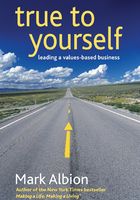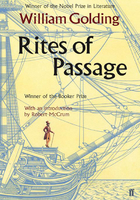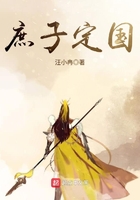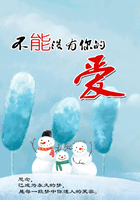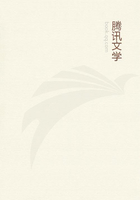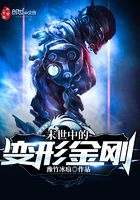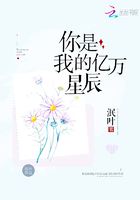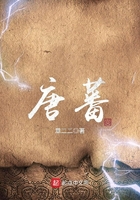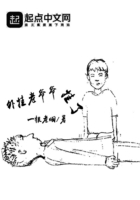Outside the garden rows we find a spot facing the lake. The wind blows strong, stirring up the impossible green-blue waters into white waves, but the sun is hot on our heads and bare arms.
Sokayawin settles back, waiting for Matisa to speak.
"The rumor is true," Matisa begins. "The girl was taking the remedy as we have always instructed. It did not protect her. And I have been trying to determine how this can be." She draws a breath. "Auntie, I believe the sickness has changed."
I squint at Matisa. "Changed?"
"I believe it is stronger now, and the remedy can no longer fight it."
Sokayawin tilts her head as if she is considering this, a worried look on her face.
"But how can a sickness change?" I ask.
"Over time, many things change to survive." Matisa waves a hand as she tries to explain. "Like the mountain deer. On the plains, deer are speckled so they can hide in the grasses from predators. Here in the mountains, their hides are shades of gray to match the rock. They have changed so they can better hide themselves. The sickness could be the same."
My frown deepens. "The sickness is an animal?"
"Not an animal, exactly." She rubs her brow. "But it is alive—we can kill it by boiling the water it lives in. And many living things change in order to survive. The sickness may have done the same."
"The sickness appears as it always has," Sokayawin muses aloud. "And the remedy, too. As long as we have been in this place, the plant grows strong."
"Whether things appear the same or not, something has changed," Matisa replies. "On our journey here, Em dreamt of me crushing the remedy plant to dust, then discarding it, like it is useless. I believe her dream foretold this trouble."
Sokayawin looks to me. The rest of my dream crowds into my mind: Matisa's bruised body in the soil of my settlement. I nod, my stomach knotting.
"Auntie, we must tell our people."
Sokayawin clucks her tongue. "Telling them the remedy is useless could be dangerous. They may lose trust, like sohkatisiwak did."
My skin prickles at the mention of the group of abandoners from this village. They left a year ago, fed up with the secrecy of the circle. For reasons unknown to us, they were hunting for Matisa; we narrowly escaped them on our journey here.
"We have no choice. We must tell them," Matisa says. Movement along the shore interrupts her.
A group on horseback is making their way around the lake. As they get close, I can see by the leather breastplates and wrist guards that they are warriors. Huritt, their leader, is at the front. He's a huge man in dark leathers, his long hair pulled back all severe from his face, and on his tall black horse he makes a fierce picture.
"Day and night, they train," Sokayawin murmurs, watching them head west to where the river meets the lake.
"But our battle prowess will not be enough against the Dominion," Matisa says. "And if we have nothing to negotiate peace, the war I dreamt of will destroy us." A somber silence falls. We watch the riders wind along the shore until they are specks in the distance.
"I have been thinking about Em's settlement—the way it was when I found her." Matisa speaks, her voice halting. "Secrets kept her people captive and struggling."
My brows knit while I work out what Matisa means but isn't saying. She's drawing a parallel. In my settlement, one man's secret kept my people choosing fear for years. We guarded our walls against some spirit-monster, punished one another for failing our virtues.
"It's not the same," I say. "The secret in our settlement was created to protect one man's position, and it destroyed him." I can picture the face of our leader, Brother Stockham, the moment I revealed his deceit to my people. A heartbeat later, he ended his own life. "Your healers created a secret to ensure everyone's survival."
"Both were desperate acts."
"But at least yours was meant for good," I argue.
"No matter their reason, secrets can do harm," Matisa says.
There is a flicker of disquiet in Sokayawin's eyes. "You should say all you wish to say."
Matisa takes a deep breath. "Auntie, you tell me that our understanding of ourselves, our ability to see our path, comes from retelling our stories, one generation to the next. But what happens when those stories have been changed—when the truth has been concealed? The healers' circle has not dreamt our path in many years." She looks at me. "And I believe finding Em, learning that secrets kept her people in fear and desperation for so long, was a warning. Our secret was thought to be necessary for the good of our people, but I feel that it has disrupted our ability to see things clearly. Perhaps if we disclose the truth, more of us will begin to dream again, and our path will become clear. We need to tell our people what the remedy is and why it has been kept secret."
I risk a glance at Sokayawin. Her face is calm, but her eyes burn bright.
"You wish to break the circle," she says.
"No …"
"We are looked to as leaders because we protect our people with our methods. Disclosing such a thing will change that."
Matisa is silent.
Sokayawin rises to face the lake. When she turns back to us, her expression is grave but not angry. She speaks words in her own tongue to Matisa, turns, and starts back to the village.
I look at Matisa.
"She says I must speak to the rest," she says.
"That notion of breaking the circle won't sit too well with the others," I remark.
She draws her knees up, wraps her arms around them, and sits quiet a moment. "I have been thinking about sohkatisiwak," she says. "They were right, in a way."
"To abandon you?"
"No. To believe that the circle was not truly protecting our people."
"But you are. I mean—you're trying."
"We are failing."
"It doesn't mean they were right," I protest. "They have foolish beliefs. They think the woods outside my settlement are forbidden because they contain something powerful that the circle is keeping secret."
"The remedy plant came from those woods, and we kept it secret," Matisa points out. "Again, they were right, in a way."
"The woods are forbidden because your scouts disappeared there all those years ago. We discovered the truth when you found me—their deaths were at the hands of our settlement leader; it had nothing to do with the Bleed or the remedy plant."
"I know." She sighs. "But I can't help but wonder …"
"What?"
"If it was more than mistrust that caused sohkatisiwak to desert us." She chews her lip. "Only one thing prompted me to leave the safety of this valley."
She's speaking on her dreams. "Matisa," I say. "They were hunting you—"
"But we still don't know why."
I'm quiet.
"I just wonder." She stands and dusts off her hands. "But these are thoughts I will not share with the circle. My ideas about our secrecy will be enough for today."
I watch her catch up to Sokayawin, my heart clenched tight. Can't figure her thoughts on sohkatisiwak, but as she becomes a small form in the distance, her words from earlier drift through my mind.
Secrets can do harm.
Unbidden, an image of Kane standing on the hill where we said goodbye creeps into my heart. Not telling him what I knew about the Bleed was my attempt to protect him from knowing a dangerous secret. But if I'd been more honest with him, would we be parted right now?
A shadow creeps into the corner of my vision. It's the dog from earlier, lurking near a rock. Her ears prick forward when I look at her. Matisa says dogs were once used for helping to carry things, but ever since Matisa's people settled here, they've kept dogs as companions.
Almighty.
"No food here," I say, showing my empty hands.
She wags her tail.
"Shoo," I say.
She creeps forward, her belly low to the ground. She's so thin—just matted hair and bones. All bedraggled. Reminds me of someone I used to know.
Reminds me I've been deceived by appearances before.
Charlie, the outcast from my settlement, the boy who betrayed us on our journey here and near got us all enslaved, looked vulnerable like this starving dog. My guilt clouded my good sense when I gave him a chance, took him with us. My anger overshadowed sense again when I punished him for betraying us and left him tied to a tree with small chance for survival. He was all alone …
I push the thought from my mind and step forward. The dog shies back a mite but—Almighty's grace—peers up at me, hopeful-like.
"Go on," I say.
I head back to the village. When I reach the outskirts, I look back. She's not following. I wind through rows of buildings, watching children chase each other around, passing by women and men who are doing all manner of work as they sit together in the sun: cooking large game, mending garments. But some of them are in their leathers, which means they've either just finished warrior training or are about to begin. A few people raise their heads and watch me as I pass. It's a bit unnerving, but I realized weeks ago their eyeballing was curious, not wary.
Still, their stares remind me I'm a stranger here, and not a particular useful one so far. I clench my teeth. Need to do something. Anything.
I cross through a gleaming network of buildings, built of large stones and timber, and head for the horse paddocks.
Three boys stand at the far end. I recognize Isi by the way he stands—straight and proud. If you didn't know better, you'd think he was always cross. But I'm happy to see his fierce face. His jaw loses its hard edge as I approach.
"Emmeline," he says.
I nod hello to the other boys, who are checking over their riding gear.
"You going somewhere?" I ask him.
He shakes his head. "Oiling the gear." He waves his hand at the leather effects before him. "Everything needs to stay in good order." For the warriors, he means. "What troubles you, ankwaca?" He's calling me squirrely; it's his way of saying I look preoccupied. I frown. My gaze drifts over to Matisa's horse—the one Kane's little brother Daniel named Dottie. She stands in the center of the herd. Matisa said I need a gentle horse …
"You wish to ride?" Isi asks.
"It's just … well, Matisa's busy right now, but she thought it might be good if I gave it another go. Trying to learn, I mean. She thought …"
"Ah," Isi says. "She believes you need a better teacher."
"Not real sure that's the problem. But yes."
"You are looking for me, then." I turn. A tall girl stands at the paddock gate.
"Tansi, Lea," Isi says. "Yes, Em is looking for you."
I study the girl—she's a head taller than me and seems a few years older, too. Her hair is pulled back into a tight braid, and her eyes are raven black and piercing. She looks like she could snap me in two in a heartbeat.
She jerks her chin at the horses. "If you wish to learn, I can teach you."
"Lea is restless," Isi says. "She is missing the hunt."
The hunt. Each year after the Thaw, the fastest and strongest osanaskisiwak go out in large numbers to hunt the great herds and are gone all summer. They have many other food sources, but the hunt is a treasured journey—sacred—and a way to keep up their skills. News of the Dominion kept them in the valley this year to protect their people.
"How many summers have you gone?" I ask Lea.
"This was to be my third."
"So she needs a challenge," Isi pipes up. "This is good."
I scowl at Isi. He grins. I shake my head. "I tried to learn once," I tell Lea. "Not sure I can be taught."
"Everyone can learn." Lea shrugs as she says this, as if it's common knowledge. She looks me over, and my cheeks grow warm, but if she thinks I'm unsuitable, she doesn't say.
I can feel Isi watching me.
"All right," I say. "Yes. I'd like to learn."
The sun is high as Isi and I make our way across the village. My legs are still shaky from the ride, and my hands are sore from gripping the reins too tight. Didn't go as smooth as I was hoping, but if Isi thinks the same, he doesn't say.
Riding quelled that antsy feeling for a time, but I can feel it starting back up. That feeling that I should know more. Do more.
"Ankwaca," Isi says. "What are you thinking?"
I shoot him a look. "Nothing. That's the problem."
He is quiet as we walk out toward a group of boys his age gathered on the flats. He's joining them to practice his sling on the training ground. It takes physical strength and speed; it's not something I can learn. That unsettled feeling rises. I turn to him. "What do you do when you feel …" I search for the right word. "Lost."
He raises his eyebrows. "Lost?"
"Just … when you don't know what to do next, but you feel like you should."
"I have never felt that way."
Course he hasn't. "But if you did? What would you do?"
He shrugs. "Wait for it to pass."
"But what if you can't wait? What if there's no more time, and people are depending on you to know?"
But he's distracted by something behind me. I turn.
A cluster of shapes is moving along the far shore of the lake. Moments later the blur of movement sharpens: six riders on horseback are coming along the rocky terrain at a fierce pace.
"Scouts," Isi says.
All summer they've been sending scouts out between here and the great river that winds past my settlement, wanting eyes on any newcomers. They sent the first group when we arrived with our news at the beginning of summer, a second group two weeks ago. A third group set out yesterday. Each group is meant to be gone three weeks.
"It's the second group," Isi says, surprised. "I see Keme's ribbons."
We're not the only ones to see the scouts arrive. People have left their tasks and are hurrying to greet the group. A couple of children race out along the flats, hoping to be the first to welcome them.
The six don't slow. They avoid the children by a large margin and skirt the village, streaming past the gathering crowd.
"Where's the first? Why are these returning early?" I ask.
They ride hard for the west side: the weaponry and warriors' stables. Whatever news they're bringing, they're sharing it with the war leaders first.
Isi is never one for speculation. He watches them, his face grave. "Go get Matisa," he tells me. "I will speak with Nishwa and find out."


